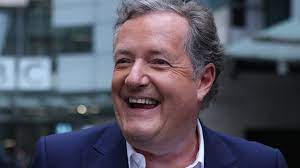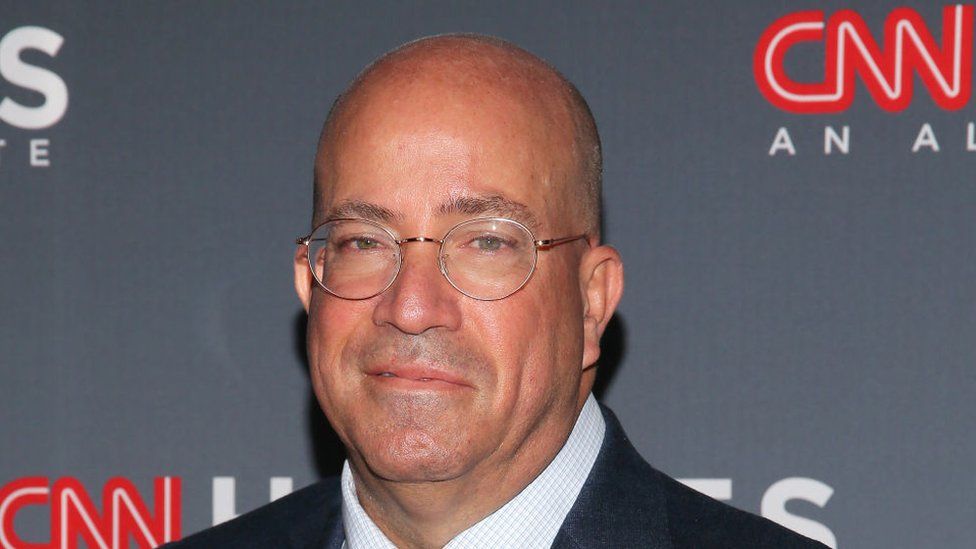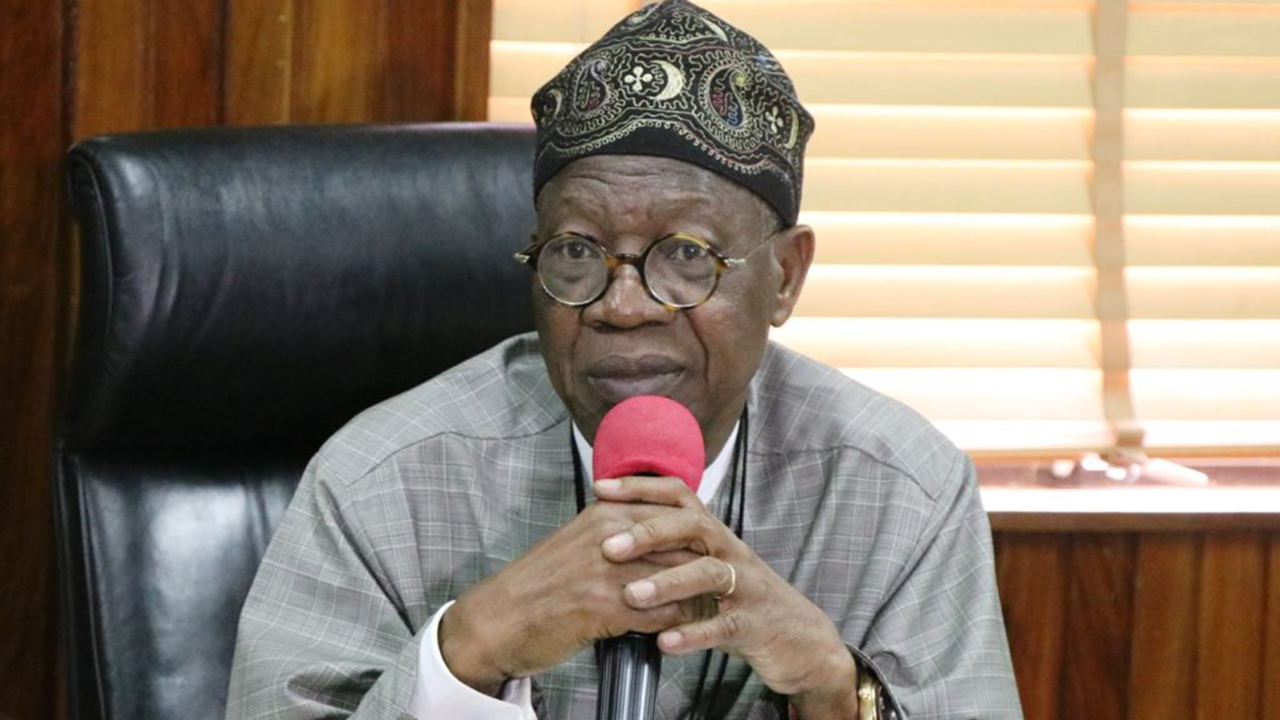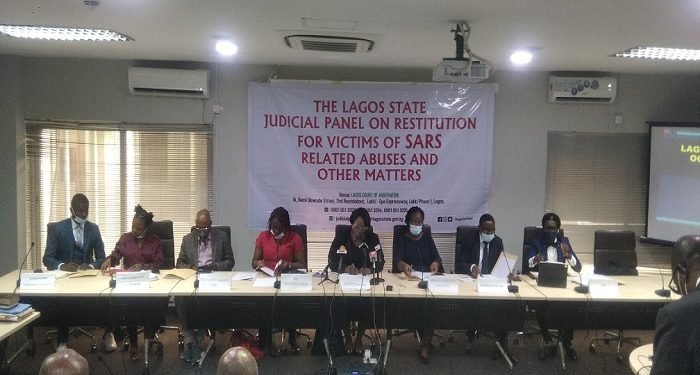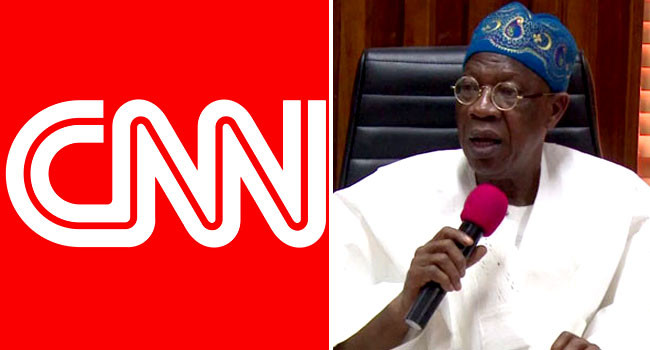By Okoh Aihe
The snake is not a likeable creep. Especially if you have had a brush with its venomous danger as I have, twice in my life and nearly got finished off at the second encounter, you have no reason to like the snake at all, and once you smell the danger from a distance, you reach for a strong stick.
This is my point of interest this morning. As you hit the snake, the creepy animal is not looking at the hand holding the stick or the owner of the hand, the snake is focused on the stick and probably working on plans to take the stick out. Unfortunately, the stick has no life of its own but must obey the voice of the master, and quickly take out the snake and spare the society of a creepy danger.
The outburst of the Minister of Information and Culture, Alhaji Lai Mohammed, last week, against the Cable News Network (CNN), can lay credence to that little allegory of the snake and the stick.
Really, Mohammed was angry, so angry that after the domestic channels seemed to have been conquered with a fine and reprimand, a foreign channel could dare to act as the little gadfly to irritate the imperial positioning of an administration that is doing very well!
In fact, it was not anger. It was indignation. When I was in the secondary school, one of our teachers told us in the class that the word means righteous anger. Oh, those teachers at Annunciation Catholic College, Irrua, Edo State, may God bless them. So, that very day the Minister removed his focus from the #End SARS movement to vent his frothing anger on CNN.
“CNN engaged in incredible sensationalism and did a great disservice to itself and to journalism. In the first instance, CNN, which touted its report as an exclusive investigative report, sadly relied on the same videos that have been circulating on social media, without verification …
“This is very serious and CNN should be sanctioned for that. CNN merely said the videos were “obtained by CNN” without saying wherefrom and whether or not it authenticated them.
Were CNN reporters and cameramen at the Lekki Toll Gate that evening?”
Mohammed didn’t have to wait for long as CNN responded immediately saying that the organization verified photos and videos acquired from multiple eyewitnesses and protesters using timestamps and other data from the video files. Video footage shows solders who appear to be shooting in the direction of protesters. And accounts from eyewitnesses established that after the army withdrew, a second round of shooting happened in the evening.
Now it is eyeball to eyeball. Who will be the first to blink – CNN or our great Minister? This question wouldn’t be necessary only if we know how to hold back our anger and learn a little lesson in crisis management. Doing the right communication is part of that crisis management because when the head is in pains, you don’t need to put it out with a hammer but apply the right medications in order to restore peace.
I am of the opinion that the government’s position concerning what happened at Lekki Toll Gate will strain credulity any day because of the equivocations of the various arms of government before a glimmer of truth started to emerge on the horizons. First was the claim by the Lagos State Governor, Babajide Sanwo-Olu that he did not invite the Army. Followed by the position of the Army that its men were not at the Toll Gate.
Yet there was another opinion that hoodlums were the ones who shot for hours at the Toll Gate. Then some little fragments of truth, the Army was there on the invitation of the Governor. It never occurred to anybody that the picture we were painting was that of a failed state where there is no recognized government, so frightening that hoodlums could be shooting non-stop in a vital part of the city, and there was no response from the security, whatsoever. Oh, add this. The Army has since told the Panel that its men went to the Toll Gate with Blank Bullets and Live Ammunition. Since the CNN story!
In plain speaking, the government soiled its sincerity on the Lekki Toll Gate tragedy and should work to right its position instead of digging itself deeper into a hole. Only then can it begin to seek compassion from those with a heart to forgive.
That little suggestion might bring some discomfort to Mohammed; this is understandable because he speaks for government. My little concern here is the place of truth in dispute resolution.
Concerning what happened at Lekki Toll Gate, truth has become a misbegotten casualty and may upend every effort to resolve the #EndSARS crisis until a much needed catharsis takes place.
Before the catharsis, let’s make a detour to broadcasting? Is it actually possible to punish CNN as the Minister canvassed? Without claiming erudition in legal matters, meaning I am totally unlearned as the lawyers would put it, I tried to look at the Act setting up the National Broadcasting Commission (NBC) and the Nigeria Broadcasting Code, the bible of broadcast operations in Nigeria, I am unable to see any law empowering the government to sanction CNN.
Having failed in my quirky search, I went to my industry sources, who, too, are unable to lay their hands on any local law to punish an international broadcaster whose global feeds are received in Nigeria. They were very categorical that the most Nigeria can do under the circumstance is to ask for a right of reply, which is a standard industry practice.
Outside that nothing much can happen. Another source noted that if Nigeria feels very strongly about the CNN broadcast, it could take the diplomatic channel to lodge a complaint. Overall, they believe the press conference by the Minister was unnecessary and capable of putting Nigeria in very bad light as a country without capacity to stomach inconvenient truth. Oh, the country already has enough problems than to add the status of a pariah state! They moaned.
But how much of truth do we have to confront the presentation by CNN apart from the hackneyed ventriloquy of fake news? In some battles you must arm yourself with the right words, and drop them as little bombs where necessary. Nigeria did that in the past and there was a vindication, even if not total.
In 2007, there was a CNN reporter in Nigeria called Jeff Koinange, of joint US-Kenyan nationality. In those troubling days of Movement for the Emancipation of Niger Delta (MEND), Koinange had sources that gave him lethal information for great stories. Reporting Nigeria, he quickly became a star, some say, superstar on the platform of CNN. But the Nigerian government thought that something was wrong and that Koinange was staging stories to build his own image.
The government was strong on the point that Koinange was paying some MEND members to stage stories for him. Mind you the government of the day never tried to invalidate the operations of MEND but did not like the reportage which looked suspicious.
But from an unlikely source came a confirmation of the suspicion by the Nigerian government. A Swiss author turned girlfriend, Marianne Briner, released emails she had exchanged with Koinange where the latter bragged of paying sources for CNN to get great stories and he, his fame. That did it. In February of that year, CNN issued a denial that the organization does not pay for interviews. Koinange was recalled from Nigeria and he left CNN in May 2008. The Nigerian baggage never allowed him to take his head above troubled waters.
My little question is: does the government have the convenient truth to dilute the CNN report or are we pursuing the Shakespearean Macbeth to tell us a “tale full of sound and fury signifying nothing”? Some say we shouldn’t pursue the answer but look at other things that trouble us. Quite a number of people are of the opinion that the #EndSARS movement is a little window into our rotten state of being and that the government should do something urgently.
The nation is in grave danger. In the past two weeks, I have had the little bad luck of flying into Asaba in Delta State, moving into Edo State by road, and hitting the state capital after a few days in some other locations. With airport arrangements in Benin completely messed up, one had to return to Abuja by road! On the road, I remembered my friend, Anikulapo – the one who wears death in his pouch but this was not a sense of invincibility. You literally see death every inch of the way but between Auchi and Lokoja in Kogi State is a complete void, a despicable absence of governance and a perilous fraternization with nihilism.
Were somebody to follow the road with a camera, how will the government describe the report? Fake news? Will the people who live along the route believe their government or the report? What then is the definition of truth? My prayer is for the people not to give the answer because such response would overwhelm the government in whatever way.
Okoh Aihe writes from Abuja.
